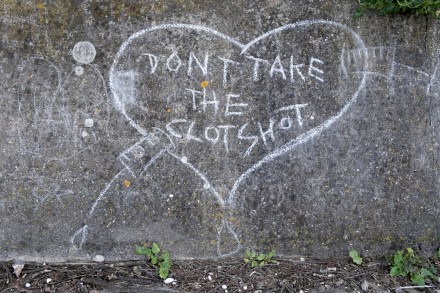How to wrongfoot an anti-vaxxer
The headline looked promising: ‘How to argue with a Covid anti-vaxxer.’ And, yes, a Times colleague had put together a good, informative feature assessing some of the bogus arguments flying around in this pandemic. But it was not what I was looking for. Since undergraduate days I’ve been fascinated by the category of mental imbalance we call paranoia, believing its milder manifestations to be present to some degree in all of us. Mass paranoia is plainly a strand in the anti-vax movement, and I’ve been listening to a powerful BBC Radio 4 and podcast series researched and presented by Jon Ronson, Things Fell Apart. Ronson looks into the rise of





















